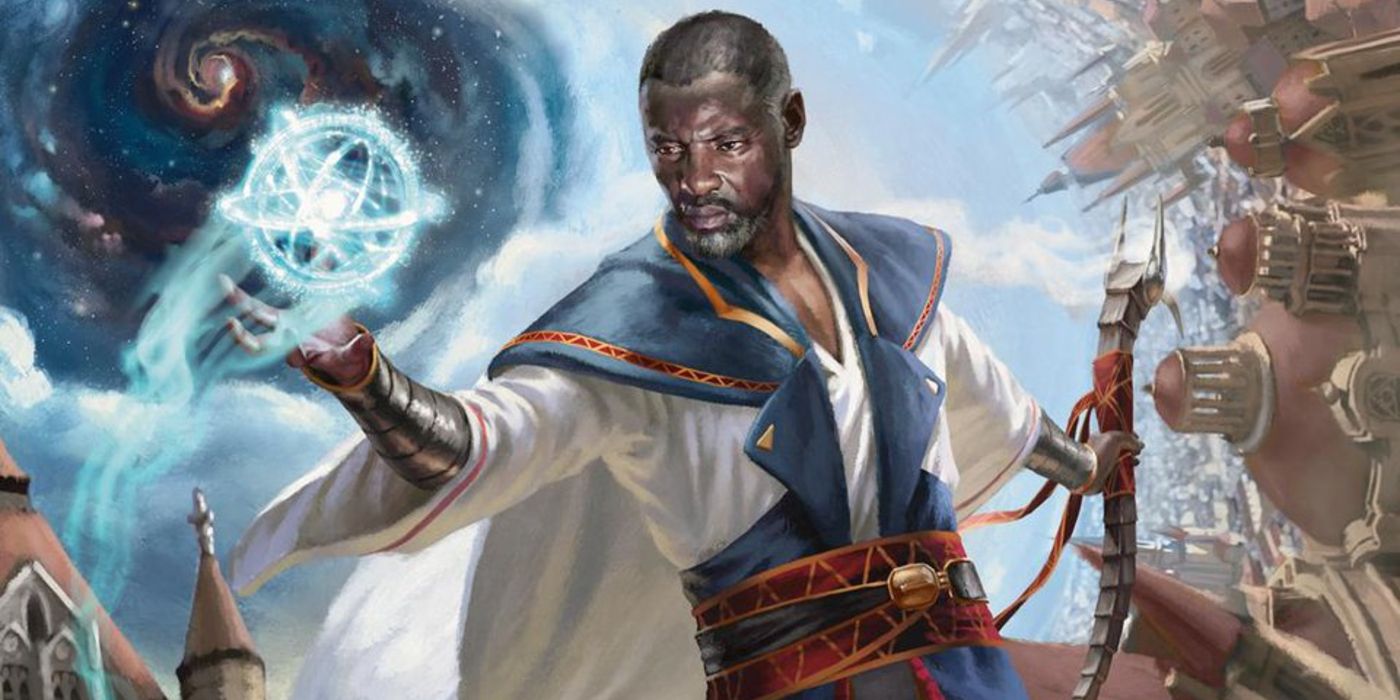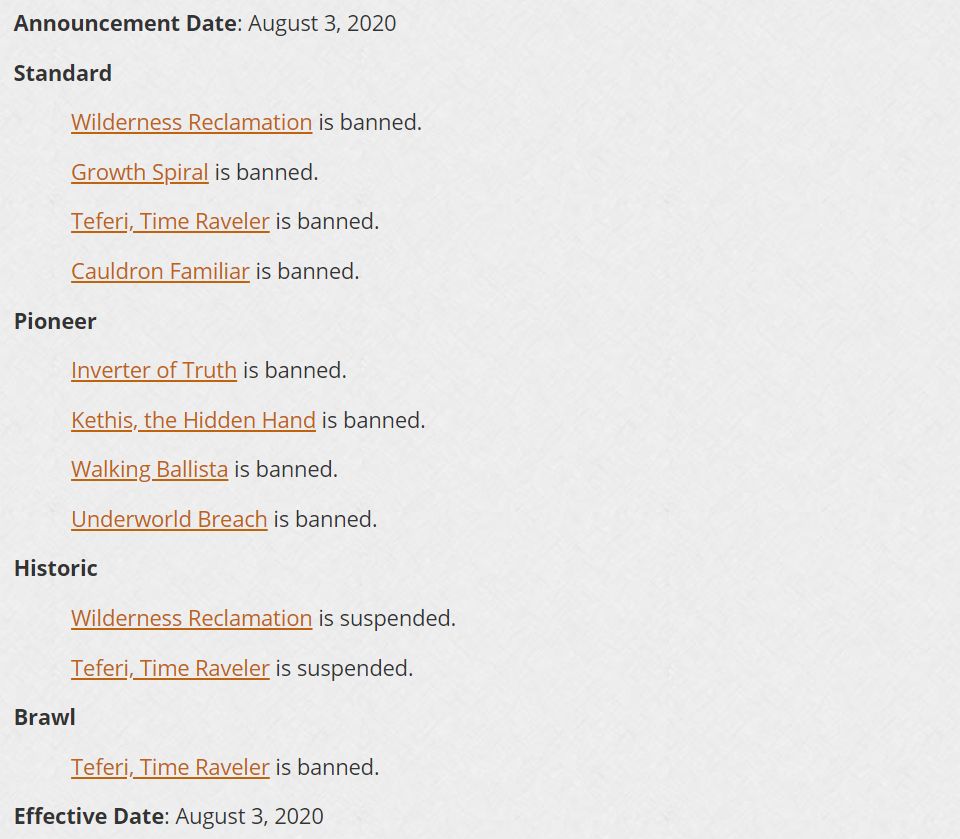Wizards of the Coast shocked the Magic: The Gathering community today with a new MTG banned and restricted list update that placed a staggering 11 cards on the banned or suspended list across four different formats. Magic: The Gathering is the popular trading card game from Wizards of the Coast and Hasbro that has also become a digital phenomenon thanks to the success of MTG Arena, an online version of the TCG that has become increasingly interesting to consumers due to many of them being stuck at home.
The Magic: The Gathering banned list has been in a state of flux over the last few years after over a decade of a mostly hands-off policy from Wizards of the Coast, but most of those changes were predictable. For instance, the undeniably powerful Oko, Thief of Crowns getting banned across several different formats was a pretty obvious move - the card had warped metagames around it and invalidated a number of strategies as a result. More recently, Wizards of the Coast has been hard at work managing its fledgling Pioneer and Historic formats, and as a result the company has increased the frequency of its banned and restricted announcements to address problematic interactions as those two variants evolve.
However, Wizards of the Coast had previously given fans at least one week warning before making these kinds of changes - something that didn't happen before today's massive Magic: The Gathering banned and restricted list announcements from MTG R&D developer Ian Duke. In the article, Wizards of the Coast essentially completely tore apart three formats' metagames in one announcement, banning Wilderness Reclamation and Teferi, Time Raveler in Standard and Historic while shredding combo deck pieces in Pioneer. Brawl also saw Teferi banned, as it creates a play pattern that many consumers simply aren't a fan of even in more recreational formats.
The new Magic: The Gathering banned and restricted list announcement is shocking for more than just the suddenness with which it was revealed - it's also the kind of sweeping change that has generally been a non-starter for Wizards of the Coast in the past. Standard was only a month away from its next rotation, a process that removes cards that have been legal in that format for a pre-determined period of time. Teferi, Time Raveler and Wilderness Reclamation both would have been lost in the rotation, so it's odd timing from Wizards to remove them now - something Duke explained as a product of the current social climate and increased pressure on digital play remaining fun and fresh.
The change is also emblematic of Wizards of the Coast's current philosophy for what its formats "should" look like - Standard's identity as a ramp-first and largely counterspell-lite format has been shaken up, while Pioneer is firmly becoming a place where combo is not allowed to be a powerful strategy. The post acknowledged that community response to Pioneer's most recent changes in particular drove the team to reconsider the format once more, indicating that the voices of players and consumers drove that major shift.
While it will be a long time before players fully grasp how much these decisions impact their respective formats - in particular, Standard will now go through two identity changes in two months with the next rotation on the horizon - it's clear these formats have been completely changed. The new Magic: The Gathering banned and restricted list announcement is heavy-handed, but it's mostly targeting cards players have felt were overpowered and un-fun for months now - so, all in all, it appears to be a positive step forward for a game that needs to make its digital product as fresh as possible right now.
Source: Wizards of the Coast


